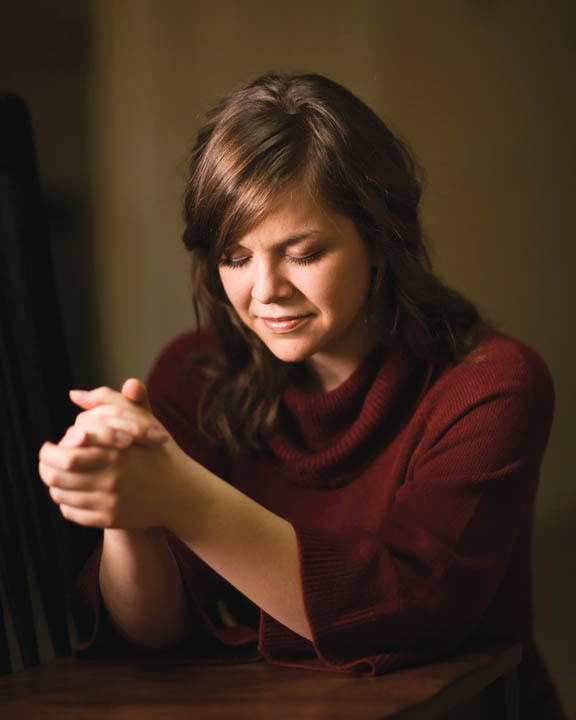Question
Hi Gramps,
I have two questions… If someone’s not following the word of wisdom for example, could still pray and ask on Him for the things needed. Life in general things like comfort for a family member going through something?
If I wanted to finish the Book of Mormon in 100 days for example and I actually did it would it be okay if I didn’t increase The Holy Ghost as much as I would have if I would be applying these scriptures unto my life?
Thanks,
Erika
Answer
Dear Erika,
Let me answer the second question first. When you read The Book of Mormon, you get the blessings of reading The Book of Mormon. You seem to be convinced that there’s one “proper” way to read and study that book. I assure you there is not. The spirit of that book will fill your life. Similarly, the person or family who reads only 1 chapter a day (except for Jacob 5 – that gets divided into two or three parts) certainly don’t get the same blessings as someone who reads it swiftly (namely they get a complete picture tying Abinidi with Alma’s people, with the Amorites, with the sons of Mosiah for instance) – but they still receive the spirit of that book (plus the blessings that come from that method of study). The same also with someone who uses The Book of Mormon for a topical study – she might not get any of the narrative, but she still gets the spirit of that book (plus the blessings that come from that method of study). If you read the entire book in 100 days, I think you will find your life immensely filled with the Spirit. I think you will find yourself thinking differently, viewing others differently, composing yourself differently, and treating others differently.
I myself have done a rapid reading of The Book of Mormon a number of times (sometimes reading it through like a novel). It has never failed to fill me with the Spirit and bless me with a testimony of that book. Said President Benson (quoting President Romney):
“‘I feel certain that if, in our homes, parents will read from the Book of Mormon prayerfully and regularly, both by themselves and with their children, the spirit of that great book will come to permeate our homes and all who dwell therein. The spirit of reverence will increase; mutual respect and consideration for each other will grow. The spirit of contention will depart. Parents will counsel their children in greater love and wisdom. Children will be more responsive and submissive to the counsel of their parents. Righteousness will increase. Faith, hope, and charity—the pure love of Christ—will abound in our homes and lives, bringing in their wake peace, joy, and happiness’ (Ensign, May 1980, p. 67).
“These promises—increased love and harmony in the home, greater respect between parent and child, increased spirituality and righteousness—are not idle promises, but exactly what the Prophet Joseph Smith meant when he said the Book of Mormon will help us draw nearer to God.“
Now on to your first question. Not only can we still pray for needed and desired things, but we are commanded to — always (3 Nephi 18:19). If sin prevents us from prayer then none of us would every pray. Sinners are commanded to pray too. And yet the scriptures are emphatic that we should not make our prayers a mockery. Proverbs 29:9 states “He that turneth away his ear from hearing the law, even his prayer shall be abomination.” When we do pray we should do so with an attitude of “hearing the law” and, of course, doing our best to follow it (which is part of the meaning of “hearing” it). If we purposefully and blatantly disregard the law, refusing to do as the Lord wills while selfishly begging for our needs and desires to be satisfied, we may run the risk of our prayers becoming abominations to the Lord. But I do not think we need fear this be the case because of weaknesses and mistakes in spite of our best intentions and efforts.
Elder Bednar taught us a great principle for improving our devotions in prayer:
“The object of our prayers should not be to present a wish list or a series of requests but to secure for ourselves and for others blessings that God is eager to bestow, according to His will and timing. Every sincere prayer is heard and answered by our Heavenly Father …
Prayer is a privilege and the soul’s sincere desire. We can move beyond routine and ‘checklist’ prayers and engage in meaningful prayer as we appropriately ask in faith and act, as we patiently persevere through the trial of our faith, and as we humbly acknowledge and accept ‘not my will, but Thine, be done.’” (Ask in Faith, April 2008 General Conference).
Continue to pray for others and for those things you need. Elder Bednar calls out the need to combine our asking with acting. In addition, make your prayers a time to invite the Lord’s help in overcoming your sin. Again from Elder Bednar:
“Consider this example. There may be things in our character, in our behavior, or concerning our spiritual growth about which we need to counsel with Heavenly Father in morning prayer. After expressing appropriate thanks for blessings received, we plead for understanding, direction, and help to do the things we cannot do in our own strength alone. For example, as we pray, we might: Reflect on those occasions when we have spoken harshly or inappropriately to those we love the most.
Reflect on those occasions when we have spoken harshly or inappropriately to those we love the most.
Recognize that we know better than this, but we do not always act in accordance with what we know.
Express remorse for our weaknesses and for not putting off the natural man more earnestly.
Determine to pattern our life after the Savior more completely.
Plead for greater strength to do and to become better.
During the course of the day, we keep a prayer in our heart for continued assistance and guidance—even as Alma suggested: “Let all thy thoughts be directed unto the Lord” (Alma 37:36).
We notice during this particular day that there are occasions where normally we would have a tendency to speak harshly, and we do not; or we might be inclined to anger, but we are not. We discern heavenly help and strength and humbly recognize answers to our prayer. Even in that moment of recognition, we offer a silent prayer of gratitude.
At the end of our day, we kneel again and report back to our Father. We review the events of the day and express heartfelt thanks for the blessings and the help we received. We repent and, with the assistance of the Spirit of the Lord, identify ways we can do and become better tomorrow. Thus our evening prayer builds upon and is a continuation of our morning prayer. And our evening prayer also is a preparation for meaningful morning prayer.
Morning and evening prayers—and all of the prayers in between—are not unrelated, discrete events; rather, they are linked together each day and across days, weeks, months, and even years. This is in part how we fulfill the scriptural admonition to “pray always” (Luke 21:36; 3 Nephi 18:15, 18; D&C 31:12). Such meaningful prayers are instrumental in obtaining the highest blessings God holds in store for His faithful children.” (Pray Always, October 2008 General Conferrence).
We sinners need prayer to bring the Lord’s grace to our faith walk towards justification and sanctification.
Gramps







